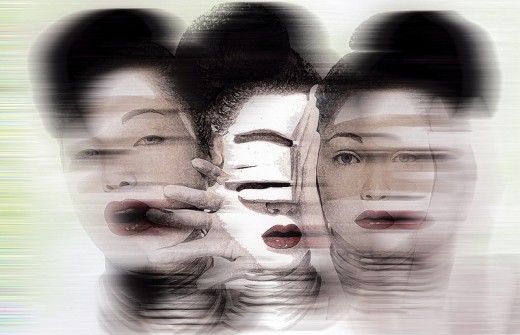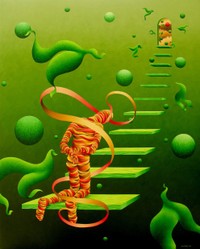Humanity has sought to deal with its chaos, the violence and destructiveness of the world, by inventing rules and ideals around morality, believing that if right conduct can be forced, then the chaos will end. But the question arises whether a person subjugated and forced into a certain pattern of conduct is actually a moral person or simply taking on a certain pretense to feel safe.
With social morality we attempt to place a doctrine on reality, which is illusory because doctrine is static and reality is living and changing moment to moment; therefore, use of doctrine is a distortion of reality, a looking away from and barrier to direct perception.
Featured image: Danny Sillada [CC-BY-SA-2.0 (http://creativecommons.org/licenses/by-sa/2.0)], via Wikimedia Commons






 Why Are My Veins So Visible?on 07/15/2020
Why Are My Veins So Visible?on 07/15/2020
 Should Female Backpackers Go on their Own? Why or Why Not?on 07/15/2020
Should Female Backpackers Go on their Own? Why or Why Not?on 07/15/2020
 Why Do BPD Women Lie?on 07/15/2020
Why Do BPD Women Lie?on 07/15/2020
 Why Do My Joints Hurt?on 07/15/2020
Why Do My Joints Hurt?on 07/15/2020


Comments
There is a vitally important distinction between the psychology of morality, which this article addresses, and morality itself, which is unlike psychology in that it is not a science. Morality derives from philosophy and religion.you overlook this point.
Your discussion of doctrine rejects unchanging truths.But some truths are unchanging. While it was no longer true that Britain has an empire, that it was once true is changeless. Moreover, while some scientific truths change [and theories certainly do] others may be unchanging. Religion is not science of any kind, and it attempts to discover timeless truths about God and his will.
Take an example, it is a timeless truth of religion that Christ died on the cross, but our understanding of the doctrine of the crucifixion is incomplete and subject to development. As Cardinal Newman observed, doctrine is ever developing. While it can be static, it ought not be. The most important point is to find the blend between timeless truths and necessary developments in belief.Your article misses out on Newman's key point.
My criticism of your article is that it tries to do too much in a small space. You have distilled what should have been book length into too short a space. But on the positive side, it is a serious article, and that is always a positive contribution to Wizzley. Keep on writing.
Morality of s spiritual origin might include fear, but that is only one factor. Pleasing God does not necessarily mean fear. A positive reason might also be the rational.